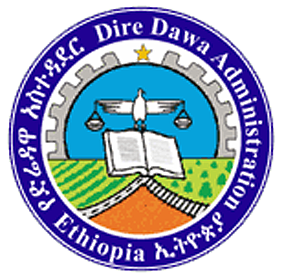People
Socio-cultural context
The colorful colonial era buildings throughout Dire Dawa are a stark contrast to the traditional, circular shacks found across Ethiopia.
Migrants come to Dire Dawa for various reasons. For many, the city’s cosmopolitan image and its reputation for socio-cultural integration across religious and ethnic boundaries is an attraction. Affectionately called ye dire lij (sons [and daughters] of Dire Dawa), residents of the city are considered to be welcoming, progressive, laid back and sociable.
Dire Dawa is known for its cosmopolitan character due to its high level of cultural diversity. The Amharic, Oromiffa and Somali languages are spoken by many residents of Dire Dawa, allowing a greater degree of social blending that typifies Dire Dawa as a melting pot. Until the 1974 revolution, Dire Dawa had a well-established expatriate community of largely Italian, French, Indian, Arab and Sudanese origin. This cosmopolitan legacy proves to be resilient, even in the context of the rising ethnic and religious cleavages that have been reinforced by Ethiopia’s post-1991 ethno-federal political order.
The total population of the Dire Dawa Administration is 521,000. Rural Dire Dawa has a population of 188,000 spread over 38 rural kebeles (smallest administrative unit) and is mainly inhabited by Oromo (73.5 per cent) and Somali (26 per cent). The population of Dire Dawa city is 333,000, which is subdivided into nine urban kebeles. The city is composed of members of the following ethnic groups: Oromo (33 per cent), Amhara (29.5 per cent), Somali (23.5 per cent), Gurage (6.7 per cent), Tigrayan (1.8 per cent), Harari (1.6 per cent) and people from southern Ethiopia, who have a history and culture of migration. In terms of religion, Dire Dawa is a Muslim majority city (70.9 per cent), followed by Orthodox Christians (25.6 per cent), Protestants (2.8 per cent), Catholics (0.4 per cent) and others (0.3 per cent). In urban Dire Dawa, Muslims constitute 57.4 per cent of the population and Orthodox Christians constitute 37.4 per cent, while in rural Dire Dawa, the population is almost entirely Muslim at 99.5 per cent.
